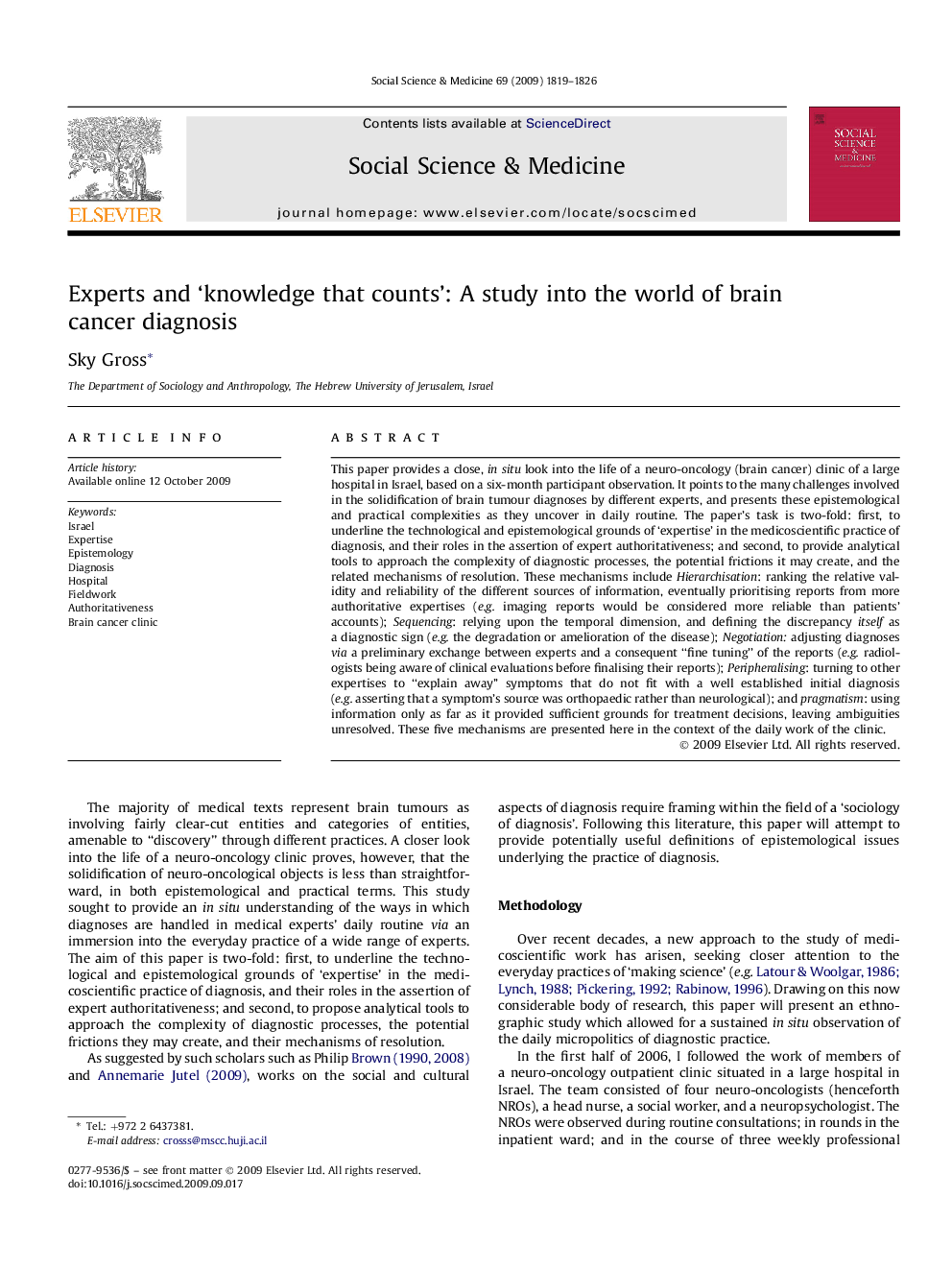| کد مقاله | کد نشریه | سال انتشار | مقاله انگلیسی | نسخه تمام متن |
|---|---|---|---|---|
| 953546 | 927590 | 2009 | 8 صفحه PDF | دانلود رایگان |

This paper provides a close, in situ look into the life of a neuro-oncology (brain cancer) clinic of a large hospital in Israel, based on a six-month participant observation. It points to the many challenges involved in the solidification of brain tumour diagnoses by different experts, and presents these epistemological and practical complexities as they uncover in daily routine. The paper's task is two-fold: first, to underline the technological and epistemological grounds of ‘expertise’ in the medicoscientific practice of diagnosis, and their roles in the assertion of expert authoritativeness; and second, to provide analytical tools to approach the complexity of diagnostic processes, the potential frictions it may create, and the related mechanisms of resolution. These mechanisms include Hierarchisation: ranking the relative validity and reliability of the different sources of information, eventually prioritising reports from more authoritative expertises (e.g. imaging reports would be considered more reliable than patients' accounts); Sequencing: relying upon the temporal dimension, and defining the discrepancy itself as a diagnostic sign (e.g. the degradation or amelioration of the disease); Negotiation: adjusting diagnoses via a preliminary exchange between experts and a consequent “fine tuning” of the reports (e.g. radiologists being aware of clinical evaluations before finalising their reports); Peripheralising: turning to other expertises to “explain away” symptoms that do not fit with a well established initial diagnosis (e.g. asserting that a symptom's source was orthopaedic rather than neurological); and pragmatism: using information only as far as it provided sufficient grounds for treatment decisions, leaving ambiguities unresolved. These five mechanisms are presented here in the context of the daily work of the clinic.
Journal: Social Science & Medicine - Volume 69, Issue 12, December 2009, Pages 1819–1826